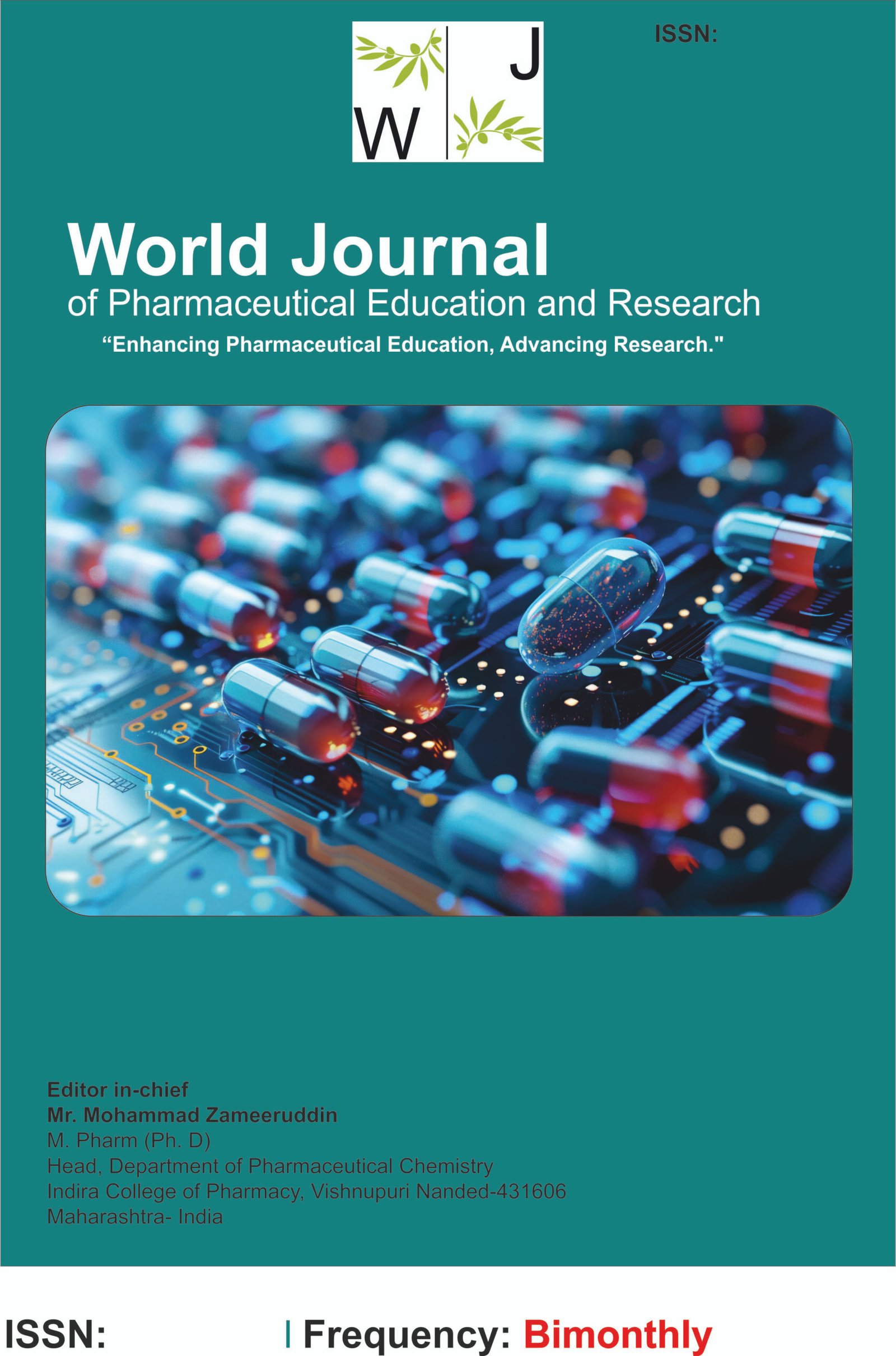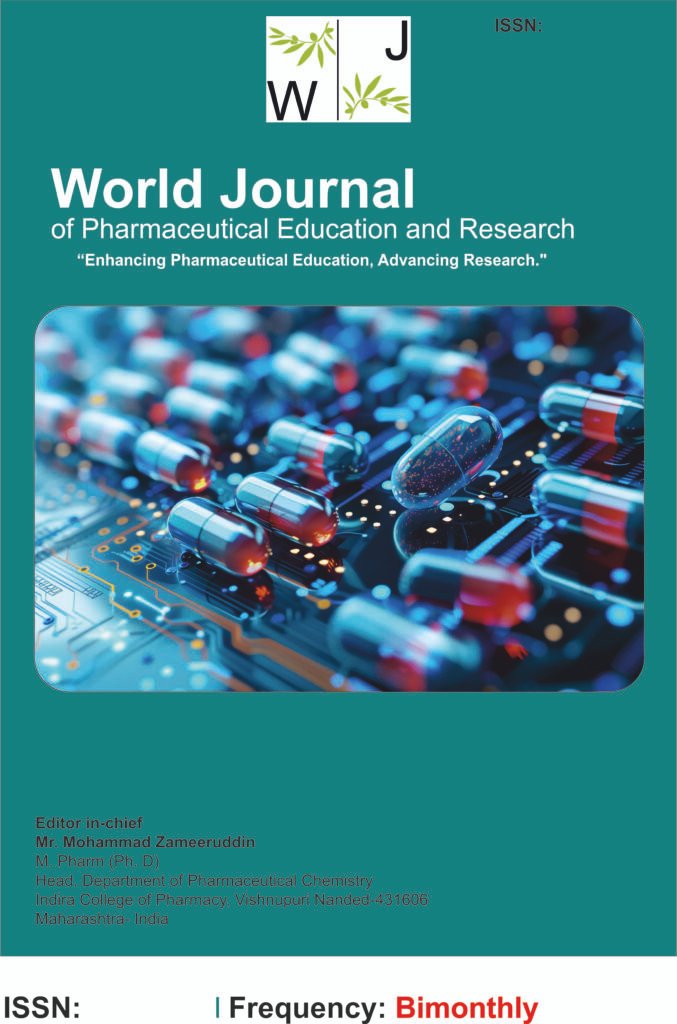Review Guidelines
The peer review process is essential to maintaining the high-quality standards of The World Journal of Pharmaceutical Education and Research. We rely on expert reviewers to provide constructive, thorough, and fair evaluations of submitted manuscripts. The following guidelines are intended to assist reviewers in delivering objective assessments of submissions.
- Instructions on How to Review Articles
- Initial Considerations
- Read the Manuscript in Full: Before starting your review, read the manuscript thoroughly to get a clear understanding of its content.
- Assess the Scope: Ensure the manuscript fits within the scope of The World Journal of Pharmaceutical Education and Research and that it aligns with the journal’s focus on pharmaceutical education, research, and related fields.
- Confidentiality: Maintain strict confidentiality throughout the review process. Do not share the manuscript with anyone or discuss its content outside of the review process.
- Key Areas to Focus on During Review
- Originality: Is the research novel? Does it offer new insights or findings in the field of pharmaceutical education or research?
- Clarity and Structure: Is the manuscript clearly written, well-organized, and easy to follow? Does the abstract provide an accurate summary of the research?
- Scientific Rigor: Are the methods described in sufficient detail? Are the results reproducible? Is the study design appropriate for answering the research question?
- Data Presentation: Are tables, figures, and charts used effectively? Are they clear, accurate, and relevant to the discussion?
- References and Citations: Are all sources properly cited? Are the references relevant and up-to-date?
- Ethical Compliance: Verify that ethical standards are maintained, particularly in studies involving human or animal subjects. Ensure that ethical approvals are clearly mentioned.
- Contribution to the Field: Does the research significantly contribute to advancing pharmaceutical education, practice, or science?
- Providing Feedback
- Be Constructive: Aim to provide feedback that is both constructive and respectful. Criticisms should be accompanied by suggestions for improvement.
- Detail Specific Comments: Highlight specific sections of the manuscript where improvements are needed, including grammar, clarity, data interpretation, and scientific methodology.
- Separate Comments for Authors and Editors: Clearly indicate which comments are meant for the authors and which are confidential and directed to the editors.
- Recommendation: Provide one of the following recommendations:
- Accept: The manuscript is of high quality with minor or no revisions needed.
- Minor Revision: The manuscript requires some minor changes before it can be accepted.
- Major Revision: The manuscript has potential but requires significant changes before it can be reconsidered.
- Reject: The manuscript is not suitable for publication in the journal.
- Review Process
- Double-Blind Peer Review
The World Journal of Pharmaceutical Education and Research follows a double-blind peer review process, meaning both the reviewers and authors remain anonymous throughout the review.
- Review Stages
- Initial Manuscript Screening: The editorial team screens the manuscript to ensure it fits the journal’s scope and complies with basic formatting and ethical guidelines.
- Reviewer Assignment: Manuscripts meeting the initial screening are assigned to two or more independent reviewers with expertise in the relevant field.
- Review Process: Reviewers evaluate the manuscript and submit their detailed feedback to the editorial team through the journal’s submission system.
- Editorial Decision: The editor consolidates the reviewers’ comments and makes one of the following decisions:
- Accept
- Minor Revision
- Major Revision
- Reject
- Revision and Resubmission: If revisions are requested, the authors must address all comments and resubmit the manuscript for a second round of review.
- Timelines
- Initial Response: Reviewers are expected to acknowledge receipt of the manuscript within 3 days of the assignment.
- Review Deadline: Reviewers should submit their evaluation within 2 to 3 weeks of receiving the manuscript.
- Extensions: If additional time is required, reviewers are encouraged to contact the editorial office in advance to request an extension.
Timely reviews are crucial to maintaining a swift editorial process, but quality should not be sacrificed for speed.
- Review Standards
- Objectivity
- Reviews should be objective and impartial, based solely on the content of the manuscript, without personal bias toward the authors or institutions involved.
- Ethical Standards
- Reviewers should notify the editorial team if they detect plagiarism, duplicate submissions, or any unethical behavior in the manuscript.
- Reviewers should also recuse themselves if they have any conflicts of interest that may affect the objectivity of their review.
- Confidentiality
- Manuscripts under review are confidential documents. Reviewers should not share or discuss the manuscript with others unless they seek permission from the editor.
- Conflict of Interest
- Reviewers should inform the editor if they have any conflicts of interest (personal, financial, or professional) that could compromise their ability to provide a fair review.
- Contribution to the Journal’s Quality
- Reviewers play a critical role in maintaining the quality of The World Journal of Pharmaceutical Education and Research. By providing detailed, thoughtful reviews, they help ensure that only high-quality research is published.
By adhering to these guidelines, reviewers help maintain the integrity of the journal’s peer-review process, ensuring that only top-tier research is published in The World Journal of Pharmaceutical Education and Research. We appreciate the time and expertise that reviewers contribute to making the journal a trusted source of knowledge in the field.
These Review Guidelines should guide reviewers through the review process and help ensure that reviews are conducted in a timely, ethical, and constructive manner.


